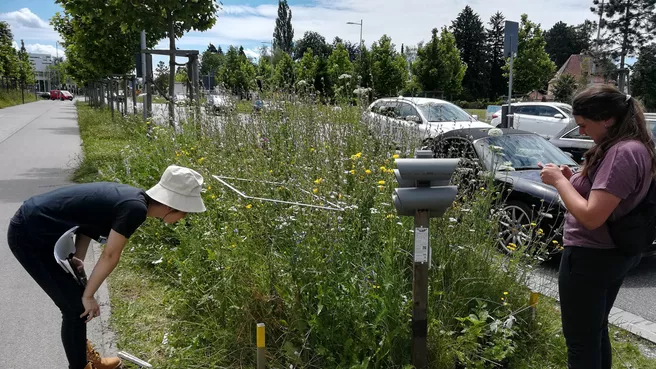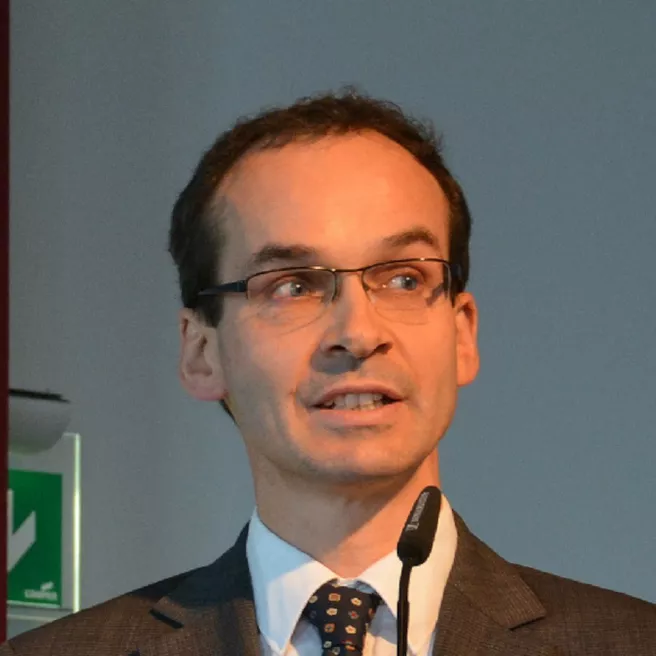Giving an overview of his lecture, Professor Kollmann states, “I am going to address examples from contrasting research projects, most of which have direct relevance in our region.” Topics will include how native poisonous plants as well as invasive neophytes, such as North American goldenrods, i.e. plants that do not naturally occur in our area, can be suppressed in grasslands.
Prof. Kollmann and his team are also researching ways of restoring calcareous grasslands, for example in the vicinity of the Garchinger Heide nature reserve. This vegetation is characterized by a particular richness of species.
“An important aspect of all restoration measures is the selection of the most suitable seeds,” says Kollmann. In his lecture, he will explain how scientists at the TUM School of Life Sciences deal with these challenges. Other exciting projects that are significant for current conservation are the reintroduction of rare arable plants for the ecological enhancement of the agricultural landscape, and the ecological upgrading of dikes and roadsides. “The examples within the lecture have been deliberately chosen in relation to the current ecological situation in and around Freising,” says Prof. Kollmann, and “corresponding questions from interested citizens are welcome.”
Discussion of the possibilities and limits of renaturation ecology on site
A subsequent discussion with the speaker is encouraged, moderated by Philipp Benz, Professor of Fungal Biotechnology in Wood Science at TUM. In this way, the citizens of Freising can discuss, for example, the strengths and weaknesses of current “Urban Green Infrastructure” in their surroundings, and suggest alternative measures.
The lecture will take place at the “Lindenkeller” in Freising on July 26, 2022 at 7:00 p.m. There is no entrance fee, and reservations are not required.
More information:
More information about the event can be found at Talks.
About the speaker:
The research of Prof. Kollmann (b. 1963) focuses on the restoration of ecosystems destroyed by human activities. In particular, he investigates semi-natural reference systems, criteria for selecting plants for restoration purposes, plant-animal interactions, invasive alien species and the long-term monitoring of restored systems.
Prof. Kollmann studied biology and chemistry at the Universities of Kiel and Freiburg. He did his doctorate on the topic of vegetation ecology at the University of Freiburg. Following a postdoc stay at the University of Cambridge, he became a lecturer at the Swiss Federal Institute of Technology in Zurich. In 2000, he accepted a position at the University of Copenhagen, and in 2010 was appointed as Chair of Restoration Ecology at TUM. Prof. Kollmann is a member of several scientific associations and co-editor of a number of international environmental journals. He is regularly called on as an expert in Germany and abroad.
About the series:
The lecture series “TUM@Freising - Science explained for ALL” is organized by the Technical University of Munich in cooperation with the City of Freising. At regular intervals, the TUM School of Life Sciences presents its research in the form of a lecture of interest to the general public. A subsequent discussion with the audience is expressly desired at the conclusion of each lecture. The lecture series is intended to give the public direct access to the scientific work that takes place at the Weihenstephan campus and provides a forum for the scientists to gain public input and feedback regarding their research.
Editing:
Dr. Katharina Baumeister
TUM Corporate Communication Center
Press and Public Relations
Scientific contact:
Prof. Dr. Johannes Kollmann
Chair of Restoration Ecology
Mail:johannes.kollmann(at)tum.de
Phone: +49 8161.71.3498

